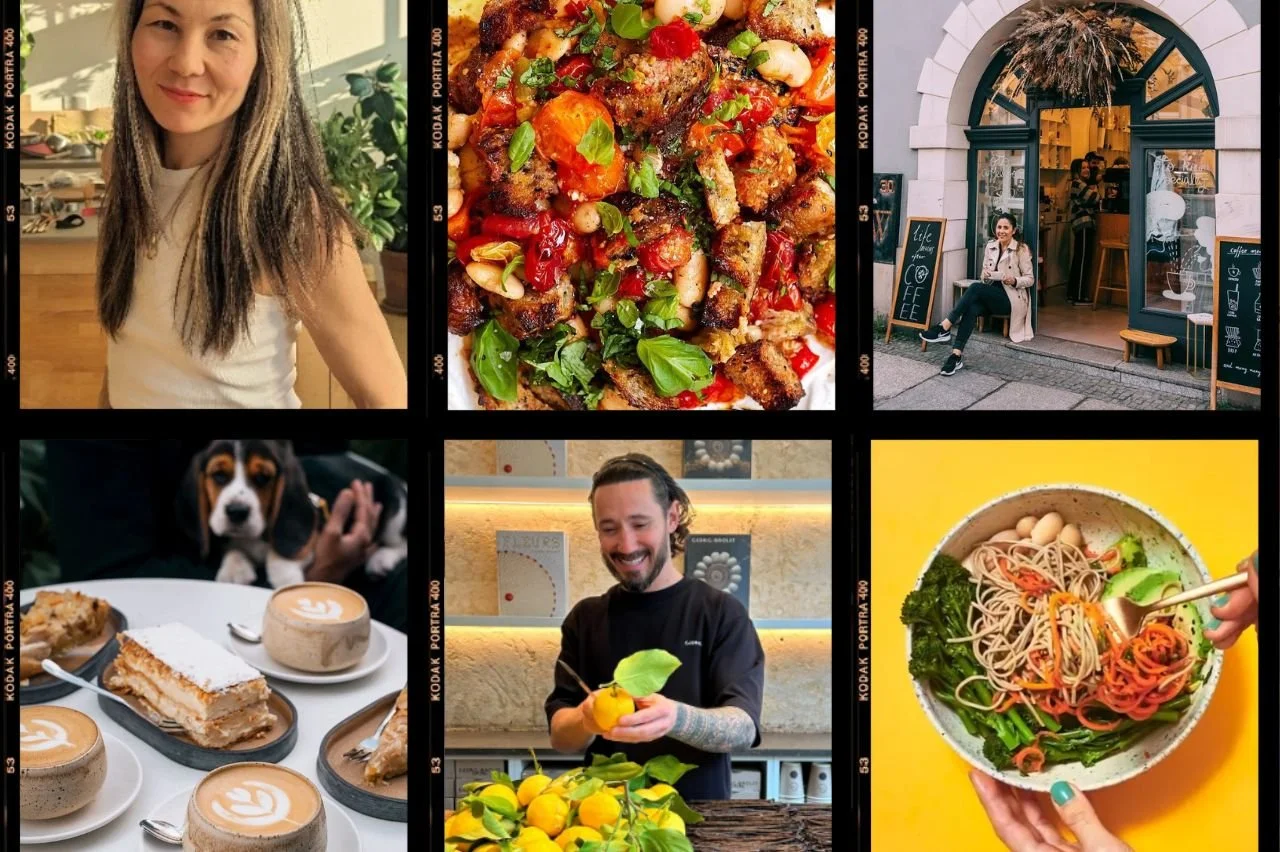Influencers: An Essential Social Media Content Type For Food and Beverage Brands
In an era where people consume more social media content than traditional media, brands need to tell their stories in a way that captures the attention of the customer in an authentic way!
“37% of people say they trust social media influencers over content that comes from the brand directly. ”
Influencer marketing uses social media influencers to promote products and services to their followers. These are individuals who have built a large following on social media platforms such as Instagram, Facebook, TikTok, and YouTube.
But for Firebelly, a large following alone is not enough to qualify a good influencer for your brand. It is also recommended to review the influencer’s engagement rates and access their overall values before deciding if they are a good fit for a partnership.
Compared to traditional forms of marketing, influencer marketing has a higher engagement rate and 37% of people say they trust social media influencers over content that comes from the brand directly. In 2023, half of all brands will increase their influencer marketing budgets compared to legacy options.
Influencer Marketing Is Changing
By the 1980s, celebrity endorsements were running rampant, but it wasn’t until the 2010s that the term influencer gained more traction. Brands quickly learned that people were likelier to trust the average person who was like them vs high-end celebrities they could not relate to.
“49% of consumers looking at social media influencers for product recommendations.”
In today’s influencer market, we are seeing history repeat itself. With everyone catching onto what influencers are and how they are compensated, people are beginning to trust large-scale influencers less and smaller niche influencers more.
At Firebelly, we call this the Micro Influencer movement, and we prefer to partner with them over Macro influencers.
Influencer marketing is currently one of the most prominent and vital forms of advertising this century. Influencers can reach millions of people through a single post, making them a valuable asset for brands looking to advertise cost-efficiently. It's a strategy that appeases at least 49% of consumers looking at social media influencers for product recommendations.
How Influencer Marketing Works
“63% of consumers trust influencer opinions more than traditional advertising.”
Influencers create sponsored content that promotes a brand’s product or service. It’s as simple as that. The brands will typically approach influencers with a proposal for partnership, which includes product placement, sponsored posts, and any other type of collaboration. In exchange for promotion, influencers are compensated with money or free products.
According to a survey by the Influencer Marketing Hub, 63% of consumers trust influencer opinions more than traditional advertising. Simply put: they are worth the budget, since this social media content pillar costs less than other advertising efforts. Whoever people trust is whom brands need to invest in!
Authenticity
“84% of consumers say they trust peer recommendations above all other advertising sources.”
Ultimately, influencer marketing allows brands to reach a built-in, highly engaged audience. Because of this inherent loyalty, they market to those who trust their opinions and recommendations. In particular, younger generations will likely make purchasing decisions based on social media recommendations.
Influencer marketing also allows brands to create an authentic connection with their audiences. 84% of consumers say they trust peer recommendations above all other advertising sources. When an influencer promotes a product or service, it’s done in a way that feels natural and organic to their followers. This relationship can ultimately lead to long-term loyalty and repeat business.
Niche
“An influencer niche is when the content creator “stays in their lane”, by delivering images, videos, products, and captions that purposefully connect with the audience they’ve amassed.”
Essentially, the niche is the influencer’s superpower. If every influencer talked about the same things, they would have no value in this subcategory of social media marketing. Besides higher engagement rates, increased brand awareness, and increased sales for businesses, influencer marketing is ideal for businesses interested in targeting specific audiences effectively.
Social media influencers already have followers who are focused on a particular niche or industry (think fashion, beauty, fitness, etc.). An influencer niche is when the content creator “stays in their lane” by delivering images, videos, products, and captions that purposefully connect with the audience they’ve amassed.
Influencer Strategies For Food & Beverage
Regarding food and beverage, influencer marketing campaigns can take numerous forms, depending on the business goals and budget. Common effective types for a campaign include:
Sponsored posts: influencers create a post that aesthetically promotes food and beverage. The post is typically labeled as “sponsored” or “paid partnership” to comply with Federal Trade Commission (FTC) guidelines.
Giveaways: influencers partner with a business to offer their followers the chance to win the food or beverage in exchange for following the brand’s social media accounts or engaging with their content.
Affiliate Marketing: the influencer promotes food or beverage using a unique affiliate link. When a follower clicks on the link and makes a purchase, the influencer receives a commission.
Where To Find Food & Beverage Influencers
If you’re a food and beverage brand looking to start your own influencer program you can start by looking for your influencer here. These are the top five that we could find.
Our Favorite Food & Beverage Influencers
Make It Dairy Free
For the lactose-intolerant crowd, no handle offers more assistance in navigating dairy-free recipes. Each delicious recipe also has valuable information with resources consumers need to live a dairy-free lifestyle.
Cedric Grolet
The executive pastry chef at Le Meurice, in Paris, knows a thing or two about how to make a social media-worth pastry. Grolet reinterprets traditional French desserts into the likeness of the fruits that they are made. His feed is replete with colorful, confectionary delights.
Mondomulia
Giulia Mule is a food and travel writer and photographer. Living in Wroclaw, Poland, she posts weekly favorite recipes and travel guides. On her platform, she is fond of sharing tasty pics of food, baking recipes, and restaurant reviews.
Deliciouslyyella
Ella Mills is a content creator that created the food ecosystem she called Deliciously Ella. The food network features a food and drink company that manufactures plant-based, healthy foods.
Shisodelicious
Sara Kiyo Popowa works with healthy food recipes and conscious eating. An author, cook, and photographer, Popowa works with veggie and plant-based eats on her feed. Her published recipe books include Bento Power: Brilliantly Powered Lunchbox Recipes & An Opinionated Guide To Vegan London.
Influencer Content Ideas For Food & Beverage
In regards to content types, there are plenty of ways your influencer can show off your food and beverage products.
Recipes
Tasting
Unboxing
How-To
We aren’t influencers, but we at Firebelly Marketing would love to influence your social media marketing efforts. If you’re ready to take advantage of the influencer marketing craze, but don’t want to be hassled to do it yourself, just book a call, and we can talk about how we can implement your influencer marketing plan for you!

